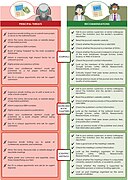File:Beware of scientific scams! Hints to avoid predatory publishing in biological journals.pdf
Appearance

Size of this JPG preview of this PDF file: 424 × 600 pixels. Other resolutions: 170 × 240 pixels | 339 × 480 pixels | 543 × 768 pixels | 1,239 × 1,752 pixels.
Original file (1,239 × 1,752 pixels, file size: 2.79 MB, MIME type: application/pdf, 9 pages)
File history
Click on a date/time to view the file as it appeared at that time.
| Date/Time | Thumbnail | Dimensions | User | Comment | |
|---|---|---|---|---|---|
| current | 00:41, 20 June 2024 |  | 1,239 × 1,752, 9 pages (2.79 MB) | Ixocactus | {{Information |Description= {{en|1='''Abstract''': Our motivation for writing this editorial is to alert the academic community about the risks of predatory publishing in Biology. By piggy-backing on the open access (OA) movement and taking advantage of the “publish or perish” culture in a system that prioritises quantity over quality, predatory publishing has grown exponentially in recent years and spread across all areas of knowledge. Thousands of predatory journals and books have emerged a... |
File usage
No pages on the English Wikipedia use this file (pages on other projects are not listed).
Global file usage
The following other wikis use this file:
- Usage on www.wikidata.org


